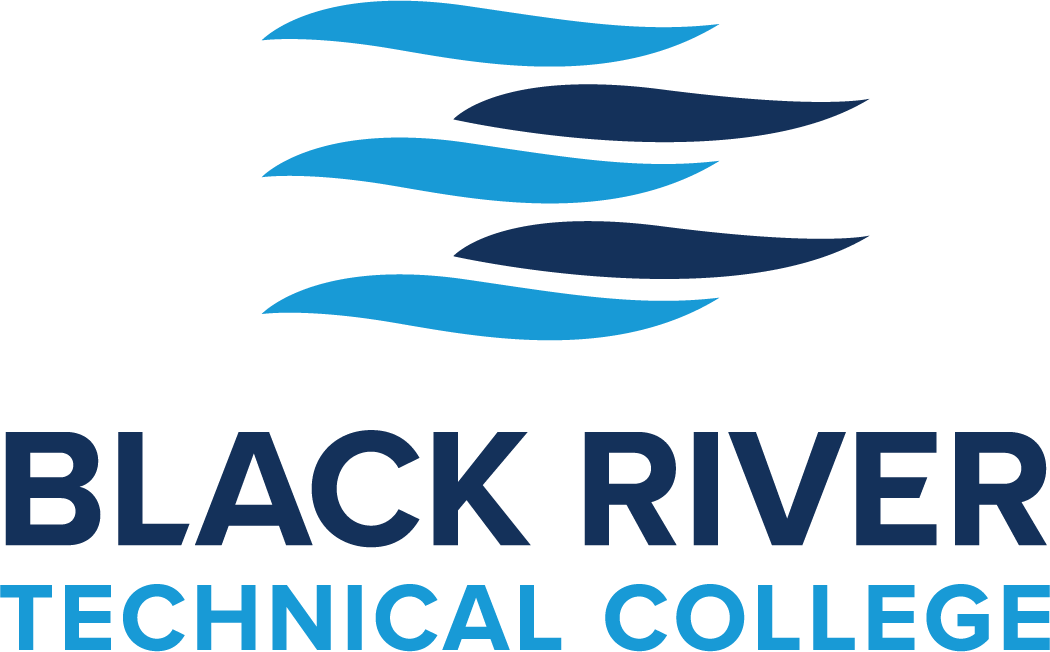|
|
|
|
|
1
|
2
|
3
-
Basic Police Training: Class 2025-B
-
RE 60 HR Pre-License - TC9784
• •
|
4
-
Basic Police Training: Class 2025-B
•
|
5
-
Basic Police Training: Class 2025-B
•
|
6
-
Basic Police Training: Class 2025-B
-
Chunky Blanket Workshop
6:00 pm - 8:30 pm
Chunky Blanket Workshop
1 Black River Dr Paragould AR
Instructed by: Edna Brown
Looking for the perfect gift for a birthday, holiday, or special occasion? Join us for a warm and welcoming workshop where you’ll learn how to create a stunning chunky knit blanket—using just your hands! No needles, no experience required—just your creativity and a love for cozy, heartfelt gifts.
In this hands-on class, you’ll discover the joy of hand knitting, a fun and easy technique that transforms plush, oversized yarn into a luxurious blanket in just a few hours. Whether you're crafting a one-of-a-kind gift or treating yourself to something snuggly, you'll walk away with a beautiful, handmade masterpiece and the skills to make many more.
What's Included:
- Step-by-step instructions from a experienced instructor
- All materials (super soft chunky yarn in a variety of colors, tape measure & scissors)
- Tips for customizing your blanket size and style
- A relaxed, creative atmosphere—perfect for beginners
Class Details:
- Thursday November 6, 2025
- 6:00-8:30 p.m.
- BRTC Paragould, Room 107
- Cost: $80
- Deadline to Register: October 31st
For more information, contact BRTC Community Education at 870-913-9611 or community@blackrivertech.edu
Register
• •
|
7
-
Basic Police Training: Class 2025-B
•
|
8
|
9
|
10
-
Basic Police Training: Class 2025-B
-
Registration for Returning Students
-
Fall & Holiday Cookie Decorating Class - Paragould
6:00 pm - 8:00 pm
Fall & Holiday Cookie Decorating Class - Paragould
1 Black River Dr Paragould
Fall & Holiday Cookie Decorating Class - Paragould
Instructed by Veda Shrable
Celebrate the seasons with a fun and festive cookie decorating class! In this hands-on workshop, you’ll learn step-by-step techniques for decorating sugar cookies with royal icing. We’ll cover outlining, flooding, and simple detailing so you can create both cozy fall and merry holiday designs.
Designs may include pumpkins, turkeys, fall lattes, Christmas trees, snowmen, ornaments, and a festive wreath.
No experience is needed—just bring your creativity! All supplies (cookies, icing, and decorating tools) are provided. You’ll go home with a tray of beautifully decorated cookies perfect for sharing with family, friends, or keeping for yourself!
- Step-by-step instructions
- All supplies are included
- Come join the fun, seating is limited
Class Details:
- Monday, November 10, 2025
- 6:00 - 8:00 p.m.
- Cost: $50
- BRTC Paragould, 1 Black River Drive
- Deadline to Register: November 3, 2025
For more information, contact BRTC Community Education at 870-913-9611 or community@blackrivertech.edu.
Register
• • •
|
11
-
Basic Police Training: Class 2025-B
-
Veterans Day Ceremony
-
Card Making Workshop - Pocahontas
6:00 pm - 8:00 pm
Card Making Workshop - Pocahontas
Instructed by: Laura Diamond, Independent Stampin' Up Demonstrator
Join us for a hands-on card-making workshop! Choose your card-making kit from a variety of beautifully designed kits (9 cards in each kit). You’ll make three beautiful, finished greeting cards in class ( more if time allows) with guided, step-by-step instruction. Everyone receives a complete kit containing enough materials to make up to nine cards, plus envelopes and printed instructions. All tools and supplies are included — just bring your creativity. No experience necessary; we’ll cover layout, layering, and simple finishing techniques so you can reproduce the designs at home.
Skill level: All levels welcome — beginners will be walked through every step; more advanced crafters can personalize and embellish.
Why take this class: Great for making seasonal cards, birthday sets, or gifts. Learn reliable techniques you’ll use again and leave with multiple finished cards ready to send.
What's Included:
- Participants may select their preferred kit from a variety of kits (over 15 designs) at the beginning of class.
- Step-by-step instructions with an instructor.
- Make 3 cards in class (or all 9 if time allows) from start to finish (cutting, assembling, embellishing).
- Bonus project too.
- Door prizes.
- All supplies are included.
Class Details:
- Tuesday, November 11, 2025
- 6:00-8:00 p.m.
- BRTC Pocahontas
- Cost: $40
- Deadline to Register: Friday, November 7, 2025
For more information, contact BRTC Community Education at 870-913-9611 or community@blackrivertech.edu
Register
• • •
|
12
-
Basic Police Training: Class 2025-B
-
Central Baptist College - Transfer Recruiter (Pocahontas)
• •
|
13
-
Basic Police Training: Class 2025-B
-
Card Making Workshop
6:00 pm - 8:00 pm
Card Making Workshop
1 Black River Dr, Paragould, AR 72450, USA
Card Making Workshop - Paragould
Instructed by: Laura Diamond, Independent Stampin' Up Demonstrator
Join us for a hands-on card-making workshop! Choose your card-making kit from a variety of beautifully designed kits (9 cards in each kit). You’ll make three beautiful, finished greeting cards in class ( more if time allows) with guided, step-by-step instruction. Everyone receives a complete kit containing enough materials to make up to nine cards, plus envelopes and printed instructions. All tools and supplies are included — just bring your creativity. No experience necessary; we’ll cover layout, layering, and simple finishing techniques so you can reproduce the designs at home.
Skill level: All levels welcome — beginners will be walked through every step; more advanced crafters can personalize and embellish.
Why take this class: Great for making seasonal cards, birthday sets, or gifts. Learn reliable techniques you’ll use again and leave with multiple finished cards ready to send.
What's Included:
- Participants may select their preferred kit from a variety of kits (over 15 designs) at the beginning of class.
- Step-by-step instructions with an instructor.
- Make 3 cards in class (or all 9 if time allows) from start to finish (cutting, assembling, embellishing).
- Bonus project too.
- Door prizes.
- All supplies are included.
Class Details:
- Thursday, November 13, 2025
- 6:00-8:00 p.m.
- BRTC Paragould Room 107
- Cost: $40
- Deadline to Register: Friday, November 7th
For more information, contact BRTC Community Education at 870-913-9611 or community@blackrivertech.edu
Register
-
LETA Class 2025-B Graduation
-
LETA Class 2025-B Graduation
• • • •
|
14
-
Last Day to Drop a Class(es)
•
|
15
|
16
|
|
17
|
18
-
Board Beautiful: Charcuterie Creations
6:00 pm - 8:00 pm
Board Beautiful: Charcuterie Creations
Black River Technical College, 1410 Highway 304 East, Pocahontas, AR 72455, USA
Instructed by: Boards & Bites
Unlock the art of crafting the perfect charcuterie board in this hands-on, flavor-packed class! Whether you're hosting a casual gathering or planning an elegant spread, this class will teach you how to create visually stunning and delicious boards that will impress your guests.
What You'll Learn:
- The basics of charcuterie: understanding different types of meats, cheeses, and accompaniments.
- How to balance flavors and textures to create a harmonious board.
- Creative and unique ways to present your charcuterie board, from rustic to modern styles.
- How to make the most of seasonal ingredients and local products.
- Time-saving tricks for putting together a quick yet elegant board.
What's Included:
- A selection of meats, cheeses, fruits, nuts, and spreads
- Each participant will receive a lovely round serving board to create and keep
- Tasting notes and pairing suggestions
By the end of the session, you’ll have the skills and confidence to assemble a charcuterie masterpiece that looks as great as it tastes! You'll leave with a beautifully crafted board to enjoy and impress, along with recipes and a list of recommended suppliers to keep the creativity flowing at home.
Class Details:
- Tuesday, November 18, 2025
- 6:00-8:00 p.m.
- BRTC Pocahontas
- Cost: $55
- Deadline to Register: Friday, November 14, 2025
For more information, contact BRTC Community Education at 870-913-9611 or community@blackrivertech.edu
Register
-
Cancelled Holiday Make & Take: Hand Soap & Body Scrubs
6:00 pm - 7:30 pm
Cancelled Holiday Make & Take: Hand Soap & Body Scrubs
1 Black River Dr Paragould, AR
Get into the holiday spirit with this fun and festive Make & Take class! In this hands-on workshop, you’ll create your own holiday-themed foaming hand soaps and luxurious body scrubs — perfect for gifting or keeping for yourself. Choose from a variety of seasonal scents, colors, and decorative packaging to make each creation uniquely yours.
You’ll learn simple techniques using natural ingredients that are easy to recreate at home. All materials are provided, and you’ll leave with two beautifully packaged holiday goodies ready to brighten someone’s day (or your own bathroom counter!).
Class Includes:
- All ingredients and supplies
- Step-by-step instruction
- Holiday refreshments and cheerful fun!
- Perfect for anyone who loves DIY projects, holiday gifts, and a little self-care.
Class Details:
- Tuesday, November 18, 2025 6:00-7:30 pm
- BRTC Paragould
- Cost $55
- Deadline to Register: November 13, 2025
For more information, contact BRTC Community Education at 870-913-9611 or community@blackrivertech.edu
Register
• •
|
19
|
20
|
21
|
22
|
23
|
24
-
Kids' Acrylic Painting Class - Give Thanks - Paragould
12:00 am - 11:59 pm
Kids' Acrylic Painting Class - Give Thanks - Paragould
1 Black River Drive Paragould AR
Instructed by Jerri Ann
Bring your creativity to life in this fun kids’ painting class! We’ll be painting a cheerful Turkey hiding behind a Pilgrim hat, Canvas step by step, perfect for fall decorating. Each child will learn basic acrylic painting techniques while creating their own masterpiece on canvas.
No experience is needed — just come ready to paint, have fun, and make new friends! All supplies are included, and every student will take home their finished Thanksgiving painting at the end of class
Class Details:
- November 24, 2025
- 4:30-6:00 pm
- BRTC Paragould Campus
- Recommended for ages 6 and up
- $20
- Deadline to Register 11/21/2025
- Spaces are limited—register early to save your spot!
For more information, contact BRTC Community Education at 870 913-9611 or community@blackrivertech.edu.
Register: https://blackrivertech.edu/kids-acrylic-painting-class-give-thanks-paragould/
-
Thanksgiving Holiday Break - Students
• •
|
25
-
Thanksgiving Holiday Break - Students
•
|
26
-
Thanksgiving Holiday Break - Students
•
|
27
-
Thanksgiving Holiday Break - Students
•
|
28
-
Thanksgiving Holiday Break - Students
•
|
29
|
30
|
|
|
|
|
|
|
|

